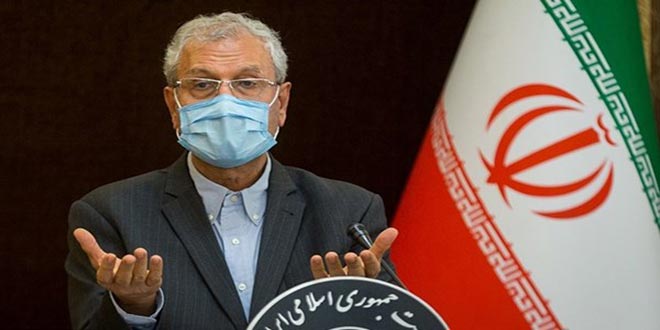Iranian media reported tentative steps by the U.S. and its European allies in the P5+1 group, which negotiated the original 2015 nuclear accord with Tehran, to resume adherence to that deal and back away from Trump administration policies, including the 2018 reimposition of economic sanctions.
Iranian Foreign Minister Mohammad Javad Zarif indicated in a tweet Friday that “the U.S. must lift all sanctions that the (former) Trump administration imposed immediately and unconditionally, in which case (Tehran) will back down on all the steps that it has taken.”
Zarif also told Iranian media that the U.S. now understands that its policy of absolute pressure on Tehran has failed and the Europeans must comprehend that there is no point in applying pressure on Iran because it does not work … If the U.S. returns to the agreement, he said, we will return to the agreement.
German Foreign Minister Heiko Maas, along with the British and French foreign ministers, warned Iran not to undermine the 2015 nuclear accord any more than it has already done, by stepping up uranium enrichment and suspending surprise visits by the International Atomic Energy Agency.
Maas said that the path that Tehran has been following will lessen any transparency (in a future) accord. Tehran, he adds, has been playing with fire and has complicated the already tortuous and complicated process (of resuming adherence to the 2015 nuclear deal).
Iranian Foreign Ministry spokesman Saeed Khatibzadeh tweeted “token steps” now being taken by the U.S. are “great,” but that the important issue is to put the P5+1 group of countries back together. “The Trump administration,” he added “left the room and tried to blow it up.”
Former Iranian President Abolhassan Bani Sadr tells VOA that now that diplomatic negotiations appear to be resuming between Iran and the P5+1 group of world powers, “two other accords concerning Iran’s ballistic missiles and Tehran’s role in the region will have to be negotiated, as well.” Iran, he stresses, is “in a weak position,” without any good cards to play.”
Bani Sadr said that Iran’s intelligence minister recently threatened to build a nuclear weapon if the West “cornered it like a cat.” The cat, he stresses, is Supreme Leader Ayatollah Ali Khamenei and he has put himself in that corner by his unwise policies of stepping up nuclear enrichment and not giving the International Atomic Energy Agency the ability to conduct surprise inspections (of Iranian facilities).
“The nuclear weapon card in Khamenei’s hands,” he argues, “is not strong enough to compel world powers to agree to Iranian demands and it antagonizes world public opinion because it puts Iran in the apparent position of being an aggressor by not respecting its previous commitments, including not producing nuclear weapons. Many will think,” he says, “that former U.S. president Trump was right to pull out of the (2015) accord.”
Ayatollah Khamenei said in a televised speech several days ago that “(the U.S.) has made promises and not kept them in the past,” so Iran “no longer trusts words alone and will now act on the basis of deeds and not of words.”
Source : VOA News







